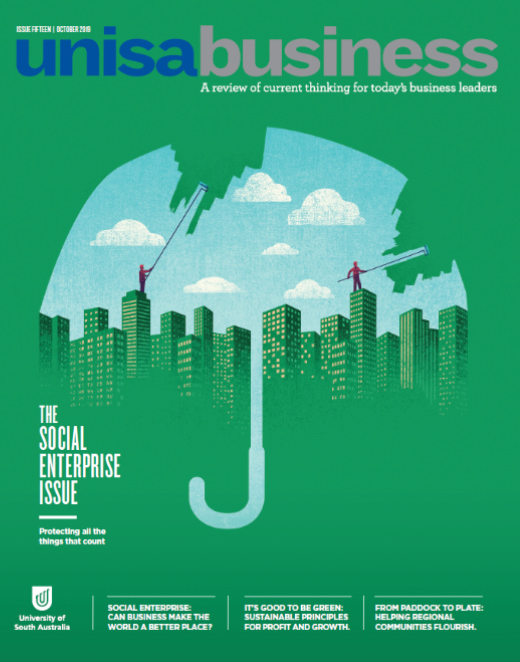25 June 2020
WRITER: Jay Weatherill
Recently, I noticed a full-page ad in the New York Times calling for members of the Business Roundtable to "get to work" in prioritising social responsibility over profit. A bold move by B Lab, the not-for-profit responsible for the ad and a leading entity behind business as a force for good; but also, a reality check for America’s top CEOs to stop talking about change and start making it.
It’s all part of a major global shift taking place within business: traditional organisations embracing the ethos of social enterprises.
There’s a broader appreciation by the private sector to consider the impact of their business beyond shareholders. Deloitte identified this as the “rise of the social enterprise” in its 2018 Global Human Capital Trends report. Observing that organisations are no longer assessed only on traditional metrics, like financial performance, but increasingly on their relationships with employees, customers, communities, and society at large, they claim we’re seeing a transformation from business enterprise to social enterprise.
Concurrently, pure social enterprises are growing in number. Depending on how the social enterprise sector is defined, it's one of the biggest employers. There's also a fast-growing social finance space that’s helping fund these enterprises.
Social finance ranges from community investing and microfinance, to investing in socially-responsible and sustainable businesses, social impact bonds, and social enterprise lending – from the private sector and from government.
For example, the Canadian government's $800 million social finance fund aims to support innovative solutions on a broad range of social challenges, as well as attract new private sector investment to the social finance sector.
People increasingly want to live, work, consume and invest in things that are important to them. It’s no longer good enough that their investments are doing no harm, but rather, that their investments are actively helping to do good.
On the flip side, there are also real consequences to ‘anti-social’ behaviour. In 2014, a Thai fishing scandal implicated major supermarket chains Woolworths, Coles and Aldi in an atrocious child and forced labour operation, where their role in the supply chain led to public shame and legal penalties.
Without doubt, there’s a growing awareness that environment, social and corporate governance (ESG), needs to be on the corporate agenda and incorporated into the decision-making frameworks of companies.
Companies that disregard ESG can jeopardise shareholder value through reputational fallout and brand damage, as well as regulatory action. The Royal Commission into banking is one example. Banks’ conduct wasn’t necessarily unlawful, but it was regarded as sufficiently unethical to warrant intervention.
Conversely, organisations that do embrace social innovation and social entrepreneurship are likely to enjoy better performance. According to a 2015 UK study, SMEs with a social purpose have a faster growth rate and return rate. Companies that manage social risk tend to be companies that manage risk more broadly, and they tend to be healthier for it.
One way that organisations can be more socially responsible is by structuring procurement to support social enterprises.
In the past, social enterprises’ main customer was government. Now, social enterprises are becoming as much of a supplier to the private sector. For example, here in Australia companies like BHP are structuring their procurement so they can support businesses that are owned and controlled by Aboriginal Australians.
Social enterprises themselves can be highly profitable; it’s in their interest to be, since the more successful they are, the more positive an impact they can have.
Business can be a force for good – and be profitable. Shifts in social expectations and consumer demands increasingly mean that all organisations, to some degree, will need to incorporate social entrepreneurship, both internally and through partnerships.
The bottom line alone is no longer enough – businesses must balance purpose and profit.


